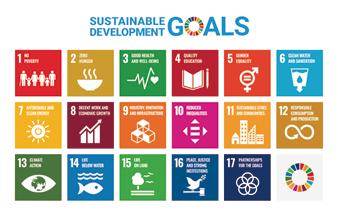
3 minute read
Annual Plan
Social impact in four directional streams
HKFYG Annual Plan for 2022-23
Advertisement
The covid-19 pandemic has seriously affected young people’s lives, causing psychological distress, loneliness, disrupted education and unemployment. In consequence, the Federation will transform its services in 2022-23, grouping them into four directional streams:
● Digitalization ● Upskilling ● Sustainability ● Mainland strategy
We strongly believe that this transformation will support young people’s efforts to rebuild their educational and career prospects while empowering them to face the future with more confidence.
Digitalization will focus on:
• Educational programmes for digital literacy • Promotion of revamped HKFYG units including
Smart SPOTs to facilitate effective learning with young people’s participation and innovation • Social innovation with technology • Application of the latest technology in services, such as strengthening early identification and intervention in counselling practice
Upskilling will include:
• Life planning to strengthen youth career pathways • Provision of comprehensive “future skills” training and internship opportunities that help young people acquire new knowledge and skillsets • Development of public health services to improve community wellbeing and open up professional career opportunities for young people • Inclusion of “future skills” thematic programmes on STEM, leadership and continuous learning
Sustainability will feature:
● Educational programmes to increase young people’s awareness and knowledge of environmental issues ● Encouragement for young people to take “green” action through launching a series of campaigns ● Promotion of the concept of “all-round wellness” and expansion of Wellness PLUS* services throughout the HKSAR for the strengthening and support of emotional health
Mainland strategy will include:
• Youth exchange programmes to develop national understanding and identity • Support for youth to seize opportunities in career and business in the Greater Bay
Area (GBA) • Setting up a designated Mainland Affairs
Office at HKFYG to support youth startups in the GBA and to foster professional exchange with counterparts in mainland China
For full version, scan QR code
All about sustainability
Sustainability is a societal goal with three dimensions: environmental, economic and social. This concept can be used to guide decisions at the global, national, institutional and individual levels.
What is sustainable development?
The concept of sustainable development was established in 1987 by the United Nations Bruntland Commission Report which defined it as “development that meets the needs of the present without compromising the ability of future generations to meet their own needs.”1
Environment
For many people, sustainability is closely linked to environmental issues, the most dominant of which are climate change, loss of biodiversity and environmental pollution, and land degradation such as deforestation and general degradation of ecosystems.
Economy
The economic dimension of sustainability is controversial, partly because of the inherent contradictions between equal levels of social development and environmental conservation.
Society
The social dimension of sustainability is the least welldefined aspect and2 some academics have proposed more dimensions of sustainability such as institutional, cultural, and technical dimensions. 3 Because of these complexities, the concept of sustainability has been criticized, mainly because it is vague, illdefined and is sometimes used purely as a buzzword but also because it might be an impossible goal.
17 “Sustainable Development Goals”
In September 2015, 193 universal member states of the United Nations adopted the 2030 Agenda which is made up of 17 goals with 169 targets. The agenda recognizes that poverty must be ended by economic growth and response to social needs while tackling climate change.4

Following the green trend
Environmental Sustainability – Research done by HKFYG’s Youth Research Centre, the findings of which will be released later this year, reveal that young people doubt the effectiveness of recycling in Hong Kong and 46% think convenient daily living makes the evils of pollution inevitable.
Sources
1. sustainabledevelopment.un.org/content/documents/5987our-common-future.pdf. 2. Sustainable Development. UNESCO. en.unesco.org/themes/education-sustainable-development/ what-is-esd/sd 3. un.org/en/exhibits/page/sdgs-17-goals-transform-world 4. Boyer, Robert HW et al (2016). "Five Approaches to Social Sustainability and an Integrated Way
Forward". Sustainability. 8 (9): 878. doi:10.3390/su8090878.










